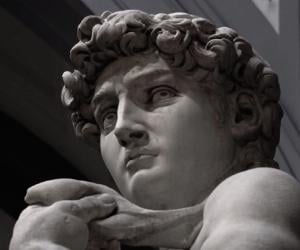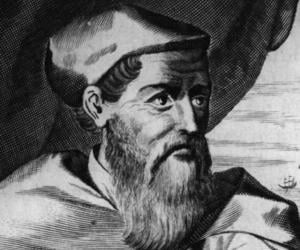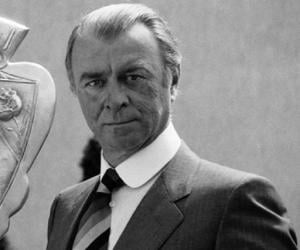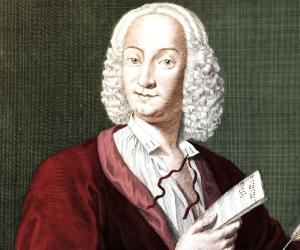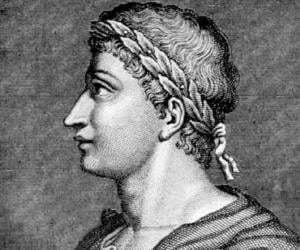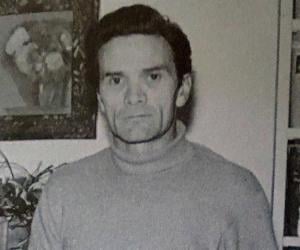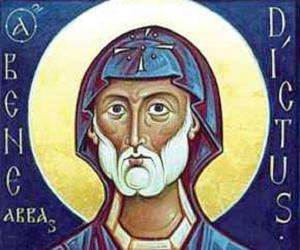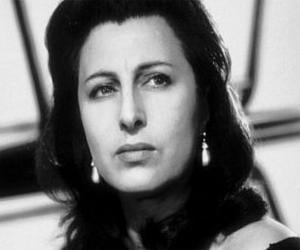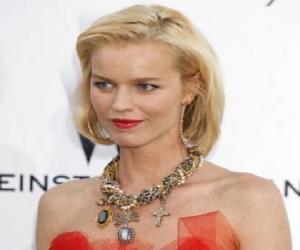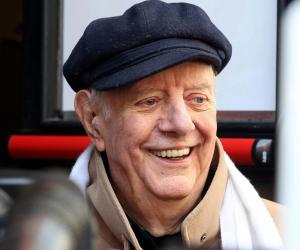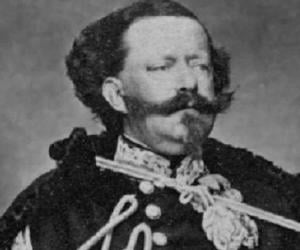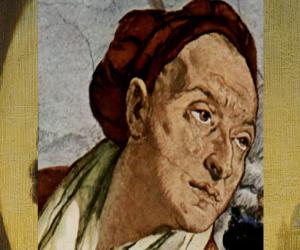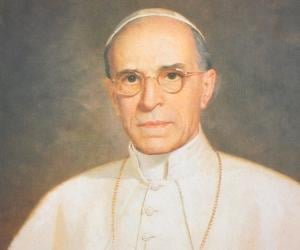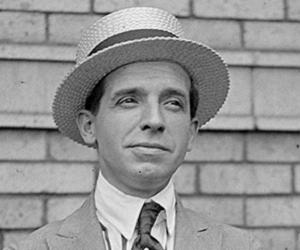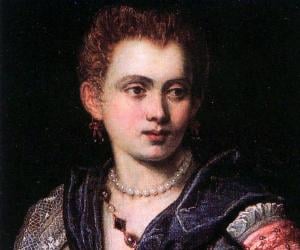Italian sculptor, painter, architect, and poet Michelangelo was a prominent figure of the High Renaissance. He is credited to have influenced the Western art in unprecedented ways. He is widely regarded as the greatest artist of his age and one of the greatest artists of all time. He was equally revered and respected as an architect.
Senegalese-Italian TikTok star Khabane Lame, a former factor worker, was laid off during the 2020 COVID-19 pandemic and began posting comedy videos on TikTok. In 2022, he became the world’s most-followed TikToker. He was named to Forbes 30 Under 30 and also sealed partnerships with Hugo Boss and Binance.
Amerigo Vespucci was a merchant, navigator, and explorer. Credited with participating in two major voyages of the Age of Discovery, Vespucci's claim that the New World represented a new continent inspired cartographers to associate the name America (a Latinized form of his first name) to the newly discovered continents.
Italian Baroque composer, virtuoso violinist, and teacher, Antonio Lucio Vivaldi, is regarded as one of the greatest Baroque composers. He was extremely popular during his lifetime and composed many instrumental concertos and operas. He was also a Roman Catholic priest and worked at a home for abandoned children. Even though he died in 1741, his music continues to be popular.
Roman poet Publius Ovidius Naso, better known as Ovid, lived during the rule of Augustus. He is held at par with Latin legends Virgil and Horace. Remembered for his mythological masterpiece the Metamorphoses, a 15-book Latin poem, he spent his final years exiled in a city on the Black Sea.
Noted film director and actor Pier Paolo Pasolini had already gained fame as a poet and author before stepping into the entertainment industry. The openly gay filmmaker was known for his usage of non-professional actors and themes of sexuality. His brutal murder remains to be a controversial topic.
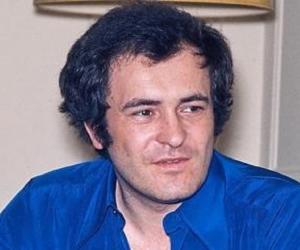
Born to a famous Italian poet and writer, Bernardo Bertolucci himself wrote and won many literary prizes in his younger days. He later established himself as one of Italian cinema’s best filmmakers and was the first filmmaker from his country to win an Academy Award, winning it for The Last Emperor.
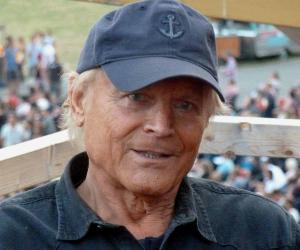
Terence Hill escaped Allied bombings during World War II and was then discovered at a swimming meet, following which he bagged his first film at 12. A well-known child actor, he grew up to work in a lot of "Spaghetti Westerns" and also became famous for his action-comedy partnership with Bud Spencer.

Once likened to pop icon Samantha Fox, Sabrina Salerno was a pop diva from the 1980s. She began her career winning a beauty contest and then became a known face on Italian TV, with shows such as Premiatissima. She later soared to fame with tracks such as Sexy Girl and Boys.
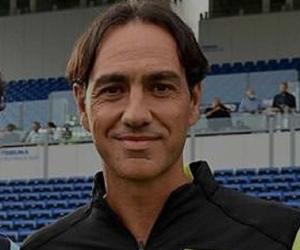
Anna Magnani was an Italian actress best remembered for her real-life portrayals of characters and explosive acting. In 1956, Magnani became the first Italian ever to receive an Academy Award when she won the award for her portrayal of Serafina Delle Rose in the 1955 film, The Rose Tattoo. She had also won other prestigious awards like the Silver Bear.

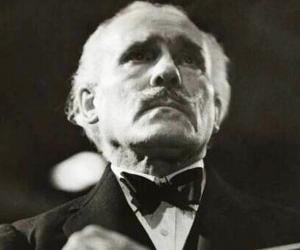



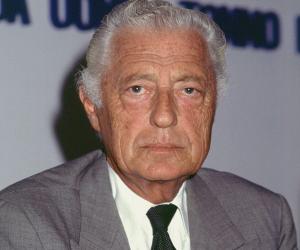
Czech supermodel-actor Eva Herzigová was quite a sports lover in her younger days. She deviated to modeling after winning a pageant at 16. Known for her iconic Guess and Wonderbra campaigns, Herzigová, who is now a mother of three, has won hearts with her classic smile and blue-green eyes.

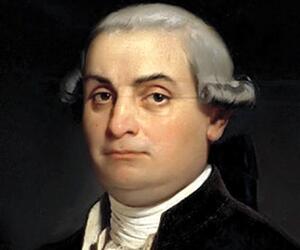
Cesare Beccaria was an 18th-century Italian criminologist, philosopher, jurist, and politician. He is widely regarded as one of the greatest thinkers of the Age of Enlightenment. He is still remembered for his treatise On Crimes and Punishments (1764), a pioneering work in the field of penology. He is considered the father of modern criminal law.
Nobel Prize-winning Italian playwright Dario Fo, best remembered for the play Mistero Buffo, donned many hats and made his presence felt as an actor, stage director and designer, and painter. He and his wife, actor Franca Rame, did everything from writing sketches for the show Canzonissima to founding theater companies.
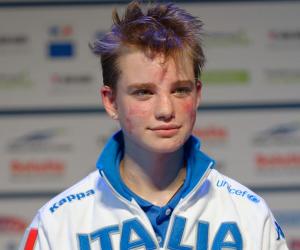
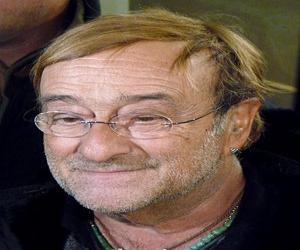
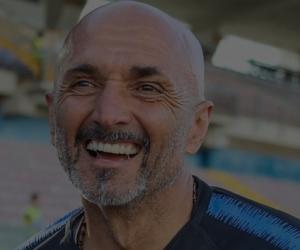
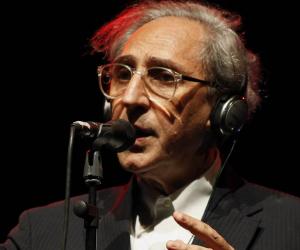
Victor Emmanuel II of Italy reigned as the king of Sardinia from 1849 to 1861. He then became the first king of a united Italy in 1861 and reigned as its king until his death in 1878. Since he played a major role in the Second Italian War of Independence, Italians started referring to him as Father of the Fatherland.
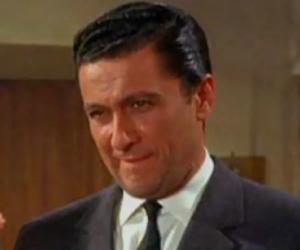
Eighteenth-century Italian painter Giovanni Battista Tiepolo was a significant figure of the Rococo movement. Son of a shipping merchant, Tiepolo gained fame with his iconic creations such as The Sacrifice of Isaac. He was determined he wouldn’t leave Venice and often sent his paintings abroad instead of traveling to paint.
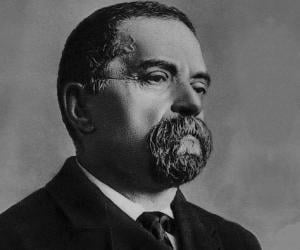
Giovanni Schiaparelli made headlines when he discovered the canals of Mars, suggesting the existence of intelligent life forms on the planet. He also discovered the asteroid named Hesperia and was associated with the Brera Observatory in Milan for more than 40 years. He had also been a senator of Italy.

Pope Pius XII served as the head of the Catholic Church and the sovereign of the Vatican City from 1939 till 1958. Of the many positions he had held, one was the secretaryship of the Department of Extraordinary Ecclesiastical Affairs. He is remembered for negotiating the treaty of Reichskonkordat.

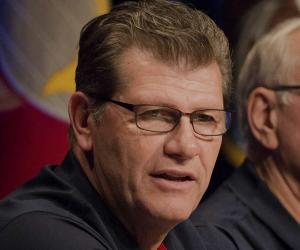
Charles Ponzi was an Italian con artist and swindler who operated in Canada and the USA. He is best remembered for his money-making scheme in which he paid his earlier investors using the money given to him by later investors. Although this type of swindling investment scheme existed before Ponzi's time, it came to be known as a Ponzi scheme.
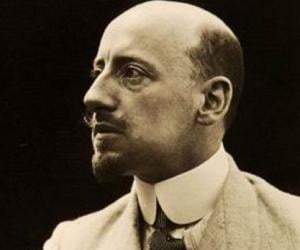
Known for literary works like Il Piacere and La Gioconda, Italian journalist, poet and playwright Gabriele D'Annunzio dominated the second period of Italian Decadentism. He became a national war hero during the First World War. His political endeavours include establishing and leading the short-lived Italian Regency of Carnaro in Fiume. He is often described as the forerunner of Italian fascism.
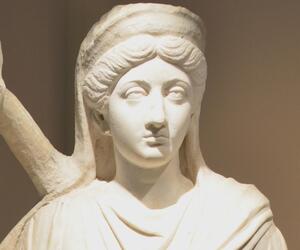
The second-born daughter of Emperor Marcus Aurelius, Lucilla was married off to his father’s co-ruler, Lucius Verus, who was twice his age. After both Verus and Aurelius died, Commodus, Lucilla’s brother, came to power. Though Lucilla was politically conscious, she was eventually executed in her early 30s for plotting the murder of Commodus.
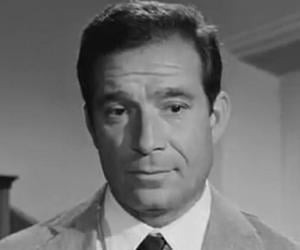
A significant Venetian figure, Veronica Franco wasn’t an ordinary courtesan but was educated and a talented poet, too. She defended herself successfully against charges of witchcraft. Born to a courtesan, she was married to a doctor briefly and later became a sex worker to sustain herself and her children.

Giorgia Palmas is an Italian model and TV personality best known for her work in the popular television show Striscia la notizia. Palmas began her media career in 2000 when she took part in the Miss World pageant, where she lost in the final round to Miss India, Priyanka Chopra. Since then, Palmas has appeared in magazines and reality shows.
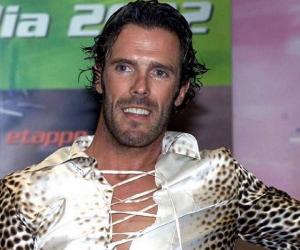
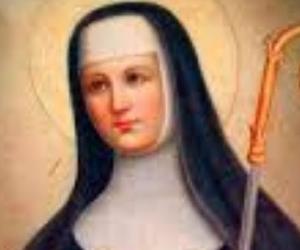
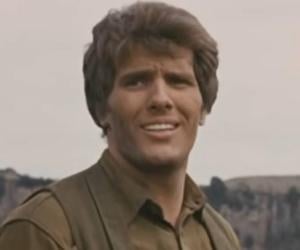
Tomas Milian was a Cuban-born singer and actor best remembered for starring in European genre films. He also played important roles in non-genre films like La Luna, which earned him the Nastro d'Argento under the Best Supporting Actor category. Tomas Milian is also remembered for appearing in many Spaghetti Western films in the late-1960s and early-1970s.


Princess Claire of Luxembourg is the wife of Prince Félix of Luxembourg and a member of the popular Grand Ducal Family of Luxembourg. An influential person, Claire is currently third in the line of succession to the crown of Luxembourg. Over the years, she has also been part of many humanitarian projects, visiting places like Tiruppur in India.
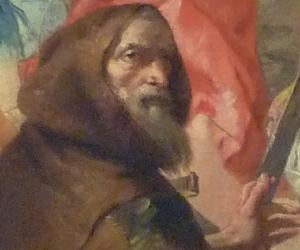

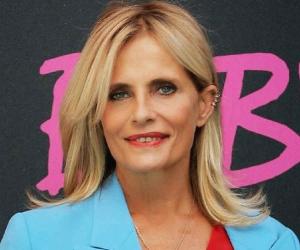
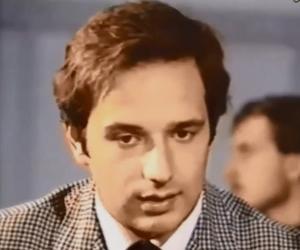
Born into an affluent Roman family, Elio de Angelis joined the Formula One scene with the Shadow team. He was also a talented pianist. Unfortunately, he lost his life in a fiery accident at the Paul Ricard Circuit in 1986, sparking debates about race car safety standards.
